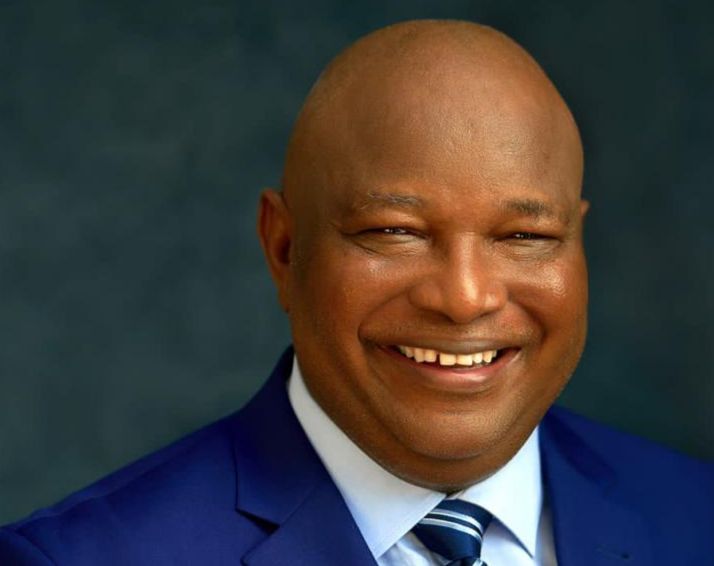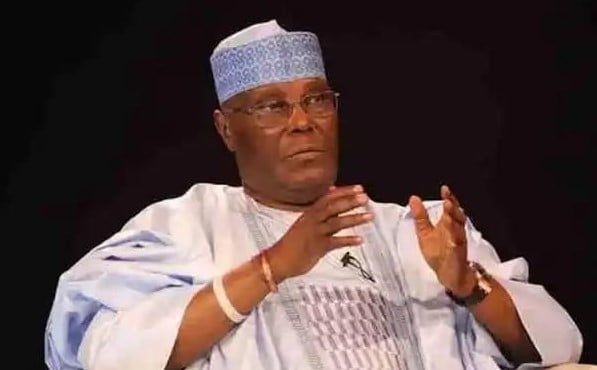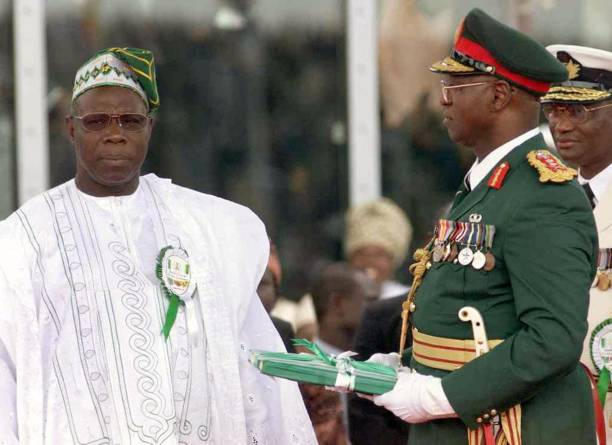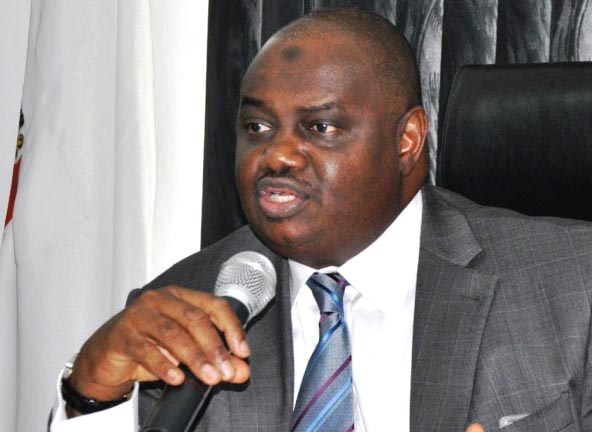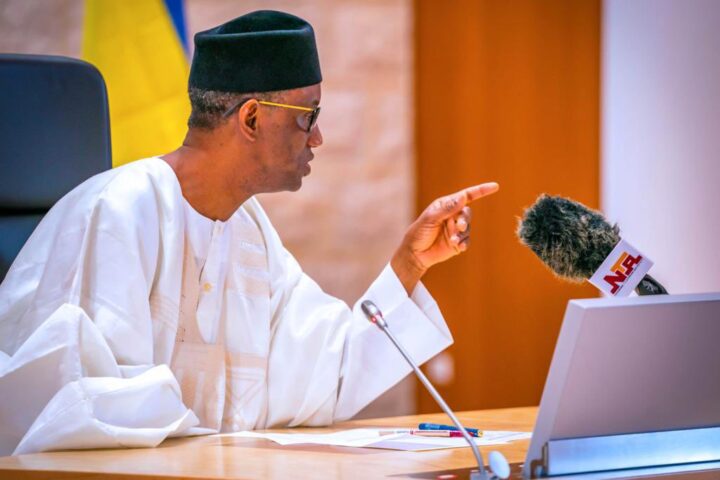Wahab Shittu is a senior advocate of Nigeria (SAN) and lead prosecutor for the Economic and Financial Crimes Commission (EFCC) and Independent Corrupt Practices and Other Related Offences Commission (ICPC). In this interview with TheCable, he assessed the administration of President Bola Tinubu after almost one year in power and sundry national issues.
TheCable: How will you assess the administration of President Bola Tinubu’s compliance with the rule of law compared to the previous administration of former President Muhammadu Buhari?
Shittu: Any assessment of the extent of President Tinubu’s compliance with the rule of law in the last one year must be made in the context of five principles of his administration outlined by Mohammed Idris, the minister of information, in particular and against the background of the fundamentals of democracy upon which any democratic government ought to be assessed.
The five principles of the administration cover policies and actions that will attract long-term local and foreign investments to Nigeria, including rebuilding the credibility and capacity of the Central Bank of Nigeria and a robust tax infrastructure to lessen the burden on businesses; policies involving difficult decisions, such as the removal of fuel subsidy and multiple exchange rates, always bearing in mind that such decisions would cause temporary pain and taking measures to assuage those in pains.
Advertisement
Policies and programmes that will provide targeted relief and benefits by way of grants, education loans, consumer credit, cash transfers, food and fertilizer distribution, and so on. The need to make necessary adjustments to policies, programmes and decisions, where necessary, in order to accommodate public response – we saw this in the adjustments to the palliative and student loan programmes; and the need to establish a robust communication network in order to keep Nigerians abreast of the policies, decisions, and programmes being made on their behalf; hence, the formation of a pioneering National Communications Team.
Significantly, there is no way any of the outlined policies and programmes can be effectively realised without respect for the rule of law, the cornerstone for democratic governance. It is in this sense that we will examine the administration’s scorecard against the background of the challenges prevalent in the justice delivery sector as detailed hereunder:
Delayed trials and backlog of cases: Long waiting periods for trials and significant backlog of cases hinder access to justice and prolong the suffering of victims and their families. Alleged corruption, bribery, nepotism, and other forms of corruption undermine the integrity of the justice system, eroding trust and fairness. Inadequate infrastructure and resources: Outdated facilities, insufficient funding, and inadequate personnel hinder the efficient delivery of justice services.
Advertisement
Limited access to justice: many citizens, especially in rural areas, face barriers in accessing justice due to distance, cost, and lack of awareness.
Human rights violations: reports of human rights abuses, including torture and unlawful detention, continue to surface, highlighting the need for reform. Inefficient investigation and prosecution: inadequate forensic capabilities, poor investigation techniques, and ineffective prosecution strategies contribute to miscarriage of justice.
Overcrowding and poor prison conditions: unsanitary and inhumane conditions in prisons, as well as overcrowding, pose significant challenges. Limited judicial independence: Political interference and executive influence undermine the independence and impartiality of the Judiciary. Outdated laws and procedures: Archaic laws and procedures need revision to align with international standards and contemporary realities. Limited public trust and confidence: Perceived injustices, corruption, and inefficiencies erode public trust in the justice system, leading to disillusionment and disengagement.
Tinubu’s administration through its proactive and visionary attorney-general of the federation, Lateef Fagbemi SAN, has on behalf of the administration initiated far reaching reforms encapsulated in the National Judicial Policy of the administration. In furtherance of this, the national justice was convened by the HAGF, essentially to present and seek the adoption of the national justice policy by government and non-government justice sector stakeholders. It remains to be seen whether the reforms stand a better chance of success.
Advertisement
Notably, when the government has a clearly stated policy setting out the official vision of the reform objectives, and committing government to specific reforms necessary to realise that vision, this is an important reference point, for any strategic approach to justice sector development. We are making progress.
The National Justice Policy identifies key priorities including strengthening the independence, responsibility, efficiency and transparency of the justice system; improving the pre-judicial investigation process to ensure a guaranteed observance of human rights, security for every person and decrease in levels of criminality; promoting and implementing the zero tolerance principle with respect to corruption within the justice system; improving the justice system to contribute to the creation of a climate that is favourable for economic growth and job creation, and securing effective observance of human rights by the application of legal practices and policies. Implicit in the policy is the recognition that it must be accompanied by detailed plans and reform, setting clear benchmarks, and framed as a process rather than a single event.
It can be said as much as possible that Tinubu’s administration has emphasised the overall importance of safeguarding the judiciary from political influence, for a fair and impartial justice system including revamping legal education to prioritise public interest litigation and ensuring broader access to justice to all Nigerians. The administration through the national assembly is embarking on the comprehensive review of Nigeria’s constitution after twenty-five years of democracy to strengthen its democratic foundations and strengthen its efficacy as a democratic tool.
TheCable: What special things do you think the president has done within his one year in office to sustain and promote the rule of law?
Advertisement
Shittu: Judicial independence: Ensuring the autonomy of the judiciary from other branches of government to uphold the rule of law and ensure fair adjudication. Legal framework review: Evaluating existing laws and regulations to identify areas needing reform or amendment to enhance access to justice and efficiency in legal processes. Corruption and ethics: Developing strategies to combat corruption within the justice system and promote ethical conduct among judicial officers and legal practitioners. Human rights protection: Strengthening mechanisms to protect and promote human rights within the justice system, including safeguards against arbitrary detention, torture, and discrimination. Gender justice: Addressing gender disparities in the legal system and promoting gender-sensitive approaches to justice, including tackling gender-based violence and ensuring equal access to legal services.
Victim support services: Enhancing support services for victims of crime, including legal aid, counseling, and rehabilitation programmes to address their needs and facilitate their participation in the justice process. Alternative dispute resolution: Promoting the use of alternative dispute resolution mechanisms like mediation and arbitration to resolve conflicts outside of the formal court system, thereby reducing backlog and promoting faster resolution of disputes. Legal aid and pro bono services: Expanding access to legal aid for indigent persons and vulnerable groups, as well as encouraging pro bono legal services from private practitioners to bridge the gap in legal representation. Court administration and case management: Implementing reforms to improve court administration, case management systems, and court infrastructure to enhance efficiency and reduce delays in the justice system. Technology and innovation: Harnessing technology to modernise the justice system, including the implementation of e-filing systems, virtual court proceedings, and digital case management tools to improve access, transparency, and efficiency.
Advertisement
Judicial training and capacity building: Enhancing the capacity of judicial officers and court staff through training programmes, workshops, and exchange initiatives to improve competence, professionalism, and adherence to best practices. Community engagement: Engaging communities in justice reform efforts through awareness campaigns, public consultations, and community-based initiatives aimed at fostering trust, participation, and collaboration in the justice process. Transparency and accountability: Strengthening mechanisms for transparency and accountability within the justice sector, including measures to enhance judicial accountability, combat corruption, and ensure fair and impartial adjudication. Legal education and public awareness: Promoting legal literacy and public awareness of legal rights and responsibilities through educational programmes, outreach activities, and media campaigns to empower citizens and promote respect for the rule of law.
Interagency collaboration: Enhancing collaboration and coordination among justice sector agencies, including law enforcement, prosecution, and correctional services, to improve information sharing, case coordination, and holistic approaches to justice. Restorative justice: Exploring restorative justice approaches that focus on repairing harm caused by criminal behavior and facilitating reconciliation between offenders, victims, and communities to promote healing and reduce recidivism. International co-operation: Strengthening international cooperation and partnerships to support justice reform efforts, including technical assistance, capacity building, and knowledge sharing to leverage global best practices and resources.
These 17 thematic areas if addressed frontally will boost rule of law compliance in the country.
Advertisement
TheCable: Are the measures effective enough?
Shittu: President Bola Tinubu’s adherence to the rule of law has been mixed since he took office. On the positive side, Tinubu has shown some commitment to legal processes, such as signing the amended Electricity Act into law, which aims to address development and environmental concerns in host communities of power generating companies.
Advertisement
Notwithstanding, there are still areas of concerns on compliance with the rule of law. For example, there have been significant concerns about his administration’s compliance with fiscal laws. The proposed 2024 budget, which he presented, exceeds the fiscal deficit limit set by the Fiscal Responsibility Act of 2007. The budget deficit is projected at 3.88% of GDP, surpassing the 3% cap mandated by the Act. This has raised questions about the legality and fiscal discipline of his administration.
There is a widespread expectation that his government should break from past practices of fiscal indiscipline and legal non-compliance to restore trust in governance. The human rights record of the administration can also do better in terms of rising to public expectations.
TheCable: Battling the growing corruption is also one of the significant part of his campaign promises. Has his administration even dived into that yet?
Shittu: There is also good news for cheer as President Tinubu sets out to launch National Anti-Corruption Strategy in 2024, a move designed to combat corruption.
National Anti-corruption Strategy in 2024 revolves around five pillars. These pillars include the prevention of corruption, public engagement, campaign for ethical re-orientation, enforcement and sanction, and recovery and management of proceeds of crime.
There are also prospects for better days ahead considering upcoming activities highlighted by the HAGF including the official launch by President Tinubu, engagement with governors and stakeholders, activation of the Anti-Corruption Funding Framework, legislative advocacy, and incorporation of the NACS into the strategic plans of relevant agencies.
Additionally, Tinubu’s administration has demonstrated a commitment to tackling corruption within significant sectors, such as the banking industry. The president appointed a special investigator to probe the Central Bank of Nigeria (CBN), which led to the dismissal of the boards and management of several banks due to regulatory non-compliance and corporate governance failures. This move is seen as a decisive action to clean up the financial sector and ensure adherence to financial laws.
Tinubu’s administration has also focused on supporting existing anti-corruption institutions, like the Economic and Financial Crimes Commission (EFCC) and the Independent Corrupt Practices Commission (ICPC). By strengthening these bodies and ensuring they operate effectively. The President aims to reduce inefficiency and waste in government operations.
These efforts indicate a strong commitment to fighting corruption, although the true impact of these initiatives will be clearer as they continue to be implemented and monitored over time.
TheCable: How will you rate his performance concerning the independence of the judiciary under his administration, and is the judiciary not compromised?
Shittu: President Bola Tinubu has taken several steps to support the independence of the judiciary in Nigeria. Key among these efforts is the proposal to increase the salaries and allowances of judicial officers through the Judicial Office Holders (Salaries and Allowances, Etc) Bill, 2024. This bill aims to update the remuneration of judges to reflect contemporary economic realities, improve their welfare, and reinforce the judiciary’s independence.
In addition to financial measures, Tinubu’s administration has also significantly increased the judiciary’s budget from N165 billion to N342 billion. This funding boost is intended to address longstanding issues of underfunding that have hampered the effective functioning of the judiciary
These actions reflect a clear commitment from Tinubu to strengthen the judiciary’s independence, which is a crucial pillar for upholding the rule of law in Nigeria. By enhancing judicial salaries and increasing budgetary allocations, Tinubu aims to ensure that judicial officers can perform their duties without financial pressures or undue influence.
The administration is however advised to consider various factors and developments that could accelerate judicial independence and autonomy as detailed hereunder:
Independence of the judiciary. Appointment Process: The manner in which judges are appointed can significantly impact judicial independence. If the appointment process is transparent, merit-based, and free from undue political influence, it strengthens the judiciary’s independence. Conversely, if appointments are perceived as politically motivated or lacking transparency, it can undermine judicial independence.
Respect for court decisions: A key indicator of judicial independence is the extent to which court decisions are respected and implemented by the executive and legislative branches of government. If court rulings are consistently obeyed and enforced, it indicates a healthy respect for the judiciary’s authority and independence.
Funding and resources: Adequate funding and resources are essential for the judiciary to function effectively and independently. If the judiciary receives sufficient funding and resources to carry out its mandate, it enhances its ability to act impartially and without undue influence.
Non-interference: Judicial independence also requires freedom from interference or intimidation by the executive or legislative branches of government. Any attempts to influence judicial decisions or undermine the judiciary’s autonomy can erode its independence.
Concerns about compromise: Despite constitutional provisions for judicial independence in Nigeria, concerns about compromise or interference in the judiciary have been raised over the years. These concerns may stem from various factors, including politically motivated cases, allegations of politically motivated prosecutions or judgments, particularly in high-profile cases, can raise questions about the judiciary’s independence and impartiality.
Delayed justice: Persistent issues such as case backlog, delays in trial proceedings, and prolonged detention without trial can undermine public confidence in the judiciary and raise concerns about its effectiveness and independence.
Corruption and bribery: Instances of judicial corruption or bribery can compromise the integrity and independence of the judiciary, as they undermine the impartiality of judicial decisions and erode public trust in the justice system.
Executive influence: Perceived attempts by the executive branch to exert undue influence over the judiciary, such as through appointments, budgetary control, or public criticism of judicial decisions, can raise concerns about judicial independence.
Overall, assessing whether the judiciary in Nigeria is compromised requires a nuanced analysis of specific cases, trends, and institutional dynamics. While there have been instances of concern regarding judicial independence and integrity in Nigeria, there have also been efforts to strengthen the judiciary and safeguard its autonomy. Ongoing monitoring, transparency, and accountability mechanisms are essential for upholding judicial independence and ensuring the integrity of the justice system.
We must not relent until we have a judiciary that is truly strengthened to facilitate access and deliver justice to all Nigerians without discrimination.
TheCable: What do you think has been the key priorities of the president as regards protection of human rights?
Shittu: President Bola Tinubu’s administration has outlined several key priorities regarding the protection of human rights. These include improving internal security, fostering economic stability, and addressing systemic issues like poverty and inequality. The 2024 budget emphasises national defense, job creation, human capital development, and poverty reduction, which are intended to create a more stable and equitable society.
Human rights organisations, however, have raised concerns about the administration’s performance so far. Amnesty International criticised Tinubu for failing to uphold human rights and urged his government to address long-standing violations, ensure justice for victims, and investigate abuses by security forces. Human Rights Watch has also recommended specific measures, such as protecting freedom of expression, ensuring fair trials, and improving social safety nets.
These criticisms ought to be addressed and taken seriously. The administration should sustain its commitment to improving transparency, accountability, and the overall effectiveness of governance, with particular focus on human capital development and economic growth as part of his broader agenda to renew hope in Nigeria.
TheCable: Does the president carry the legal profession along, especially with the selection of the right caliber of people or advisers that will ensure rule of law and harmony in the country?
Shittu: President Bola Tinubu has demonstrated a commitment to involving legal professionals and experts in governance to ensure law and harmony in Nigeria. It is on record that this administration has worked with groups like the P-BAT Academics and Professionals, which includes legal and academic experts, to support the government’s objectives. This group has actively contributed intellectual inputs to influence policy and ensure the success of Tinubu’s administration, particularly through their involvement in the Renewed Hope Agenda, which encompasses various aspects of governance including justice, law, and policy.
Overall, Tinubu’s approach in leveraging on the expertise of legal professionals to enhance governance and policy implementation reflects a broader strategy to involve knowledgeable stakeholders in the country’s administration. This culture ought to be encouraged and sustained.
On a final note, the quality and substance of the rule of law under any administration fundamentally rests on the quality of the judex, the quality of the bar particularly the quality of the attorney-general of the federation at the centre and attorney-general of states including the attitudinal chemistry of stakeholders in the administration of justice particularly the practical commitment of the ruling elite to rule only by respect for the law. Luckily, we have a president who has a record of democratic credentials and an attorney-general of the federation who is rule of law compliant, at least given his track records.
It is hoped that this will translate to real gains for the rule of law in years to come.
